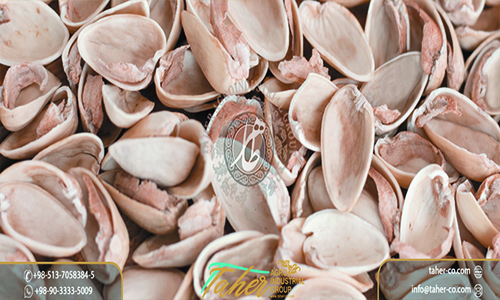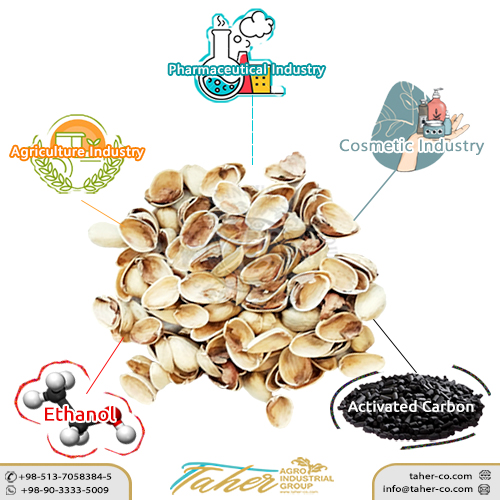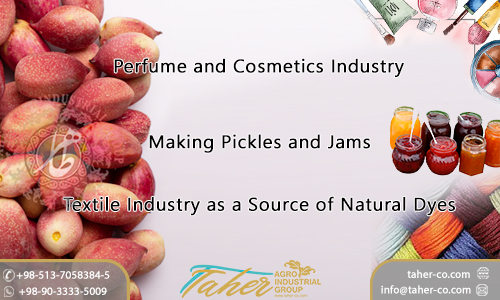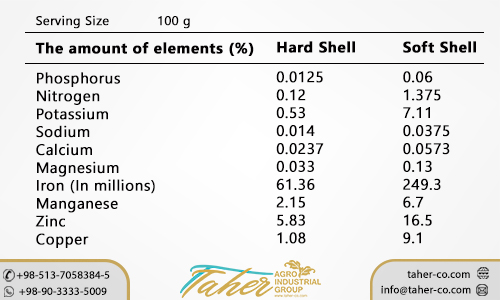Are you looking to buy pistachio shells in bulk?
The pistachio nut is a dry fruit with a hard, thin, clear brown shell covering the kernel. Many people are looking to buy pistachio shells in bulk.

Pistachio shells as abundant resources
Pistachio shells, formerly regarded as waste, could be used in wonderful ways, and there has been an ever-growing demand for them on the international market. Pistachio shell use for different applications and should not end up in landfills.
What would we do with thousands of tons of leftover pistachio shells?
The recycling and utilization of agricultural wastes, specifically pistachio wastes, is considered an important step in environmental protection, energy structure, and agricultural development.
-
- A few practices for re-use are as follows:
- As a replacement for synthetic micro-particles by cosmetic formulators and manufacturers of plastics and wood-based materials
- As a renewable alternative to the fossil fire fuel
- Provide great soil drainage.
- As mulch for shrubs and plants that require acid soils
- To reduce water pollution created by mercury emissions
- Be placed around the base of plants to deter slugs and snails.
- Renewable energy and natural resources to make biogas (an alternative fuel produced by the breakdown of organic matter)
- To provide activated carbon
- Production of MDF and chipboard
- To convert into ethanol
- For the production of bio-composites
- As an alternative to chemical fertilizers
- Using the extraction of active ingredients in the pharmaceutical industry
- Production of tar by pyrolysis process, which is rich in phenolic substances
- As a substrate for the production of edible mushrooms

Hard Pistachio Shells Usages

What about pistachio hull? Can we recycle it too?
It is wonderful that the soft pistachio shell is also not a waste. It would be useful to extract essential oils in various fields such as perfume, cosmetics, pharmaceutical, and food industries. Furthermore, pistachio hull (fresh pistachios shell) is to be applied in the textile industry as a source of natural dyes. Making pickles and jams is another great way to use up leftover hulls.
Nutrition facts of pistachio shells?
Both soft and hard shells of pistachio are rich in nutrients that contain vitamins and minerals which apply in animal husbandry as food.

Global (pistachio) nutshell market
Recycling nutshells such as pistachio, almond, peanut, and hazelnut is a modern conversion industry worldwide. This trend is also expected to continue in the future. Nut wastes can be used in paper production and the wood industry and could help to reduce cutting down trees and prevent deforestation. Also, nut wastes as biofuels reduce greenhouse gas emissions which mitigate the effects of global warming produced by fossil fuels. Japan focuses on cellulose, the principal component of cashew nut shells, for bio-plastic production. Australia burns macadamia shell waste to produce renewable energy. Italy uses natural hazelnut wrapping to create packaging for chocolates. Sub-Saharan Africa and India use peanut shells as a solid biofuel.
Status of Iranian pistachio shell export
Considering the approximately 30% of waste for agricultural products in Iran as well as the importance of the processing industry in reducing waste, biomass such as pistachio is extremely noteworthy. On average, there are approximately 520,400 tons of pistachio waste per year in Iran, which is mostly related to the peeling of the product. It can produce about 256,410 tons of bio-oil,121,255 tons of char, and 123,898 tons of gas fuel from pistachio wastes by pyrolysis, respectively. Furthermore, 103.5 million cubic meters of biogas can be achieved using anaerobic fermentation. The potential of 47.6 million liters of ethanol production from total pistachio waste can be predicted. Therefore, it can potentially become a major non-oil export for our country. Countries such as Turkey, Russia, China, and Syria are the main destinations of Iran's pistachio shell export. The use of pistachio waste, in addition to economic benefits for investors, will have positive environmental effects.
Shell of Pistachio export to Turkey
Turkey is a great trading partner export for Iranian pistachio shells, and as our neighbor country, imports substantial amounts annually from Iran. Regarding electricity production being expensive in Turkey, using agricultural residues, in special nutshells, as an alternative to fossil fuels sounds economical, reliable, and sufficient. In this country, major nutshell consumption is on households and businesses such as bakery products, hotels, universities, and other public buildings to produce heat and power.
Since nutshell is a multipurpose by-product of nut industries, nut processing manufactories are a suitable place to provide them. Taher Group is a top-notch organization in production and pistachio wholesale, so you can buy pistachio shells in bulk safely. We improve environmental sustainability by running an eco-friendly business. We have a deep commitment to wisely use natural resources and the responsibility to recycle discarded shells of Iranian pistachio due to our ecosystem issues.





Get In Touch
- OFFICE:09C01-Mashhad International Business Center, Pazh, Janbaz Square, Ferdowsi Blvd, Mashhad
- +98 519 101 1122
- info@taher-co.com


User comments